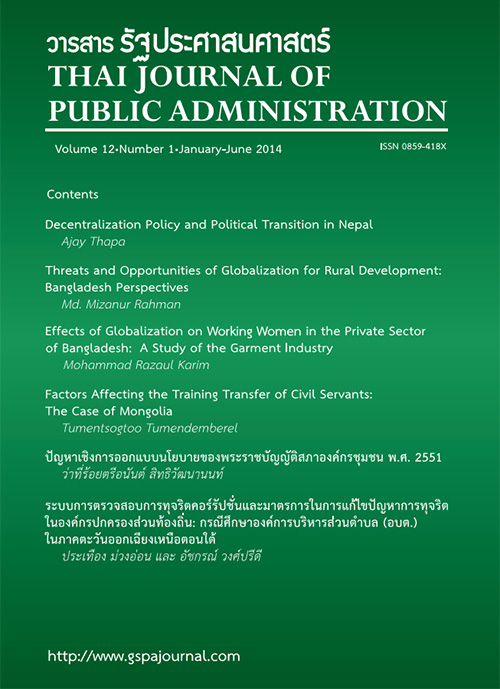Policy Design Problems of the Community Organization Council Act, B.E. 2551
Keywords:
community organization council act, B.E. 2551, policy design, policy implementationAbstract
This article has two objectives: to identify policy design problems of the Community Organization Council Act, B.E. 2551 (COC Act, B.E. 2551), and to propose solutions in the form of amendments to the Act. The study employed documentary research, observational techniques, in-depth interviews, informal interviews, and focus group discussions.
Our findings reveal problems in four major areas: 1) lack of incentives to motivate public organizations and public offi cers to implement policies; 2) an inappropriate administrative structure; 3) resource dependency of Community Organization Councils (COCs) on central government agencies; 4) Council members’ qualifications and incapacity to formulate policies. Almost all policy design problems stem from political confl ict and compromise between two key groups, those supporting the COC Act, and those opposing the Act.
The following amendments to the COC Act are proposed: 1) the Act should specify rewards, punishments, and implementation time frames to motivate public organizations and public offi cers; 2) the Act should stipulate that agencies of the Ministry of Interior have clear authority to support COC activities, and that a coordinating committee should have responsibility for integrating support at different levels for COC activities, which should ease administration problems; 3) the Act should stipulate budget support or subsidy to COCs at all levels to increase independence in self-governance and to enable COCs to carry out their development activities.



